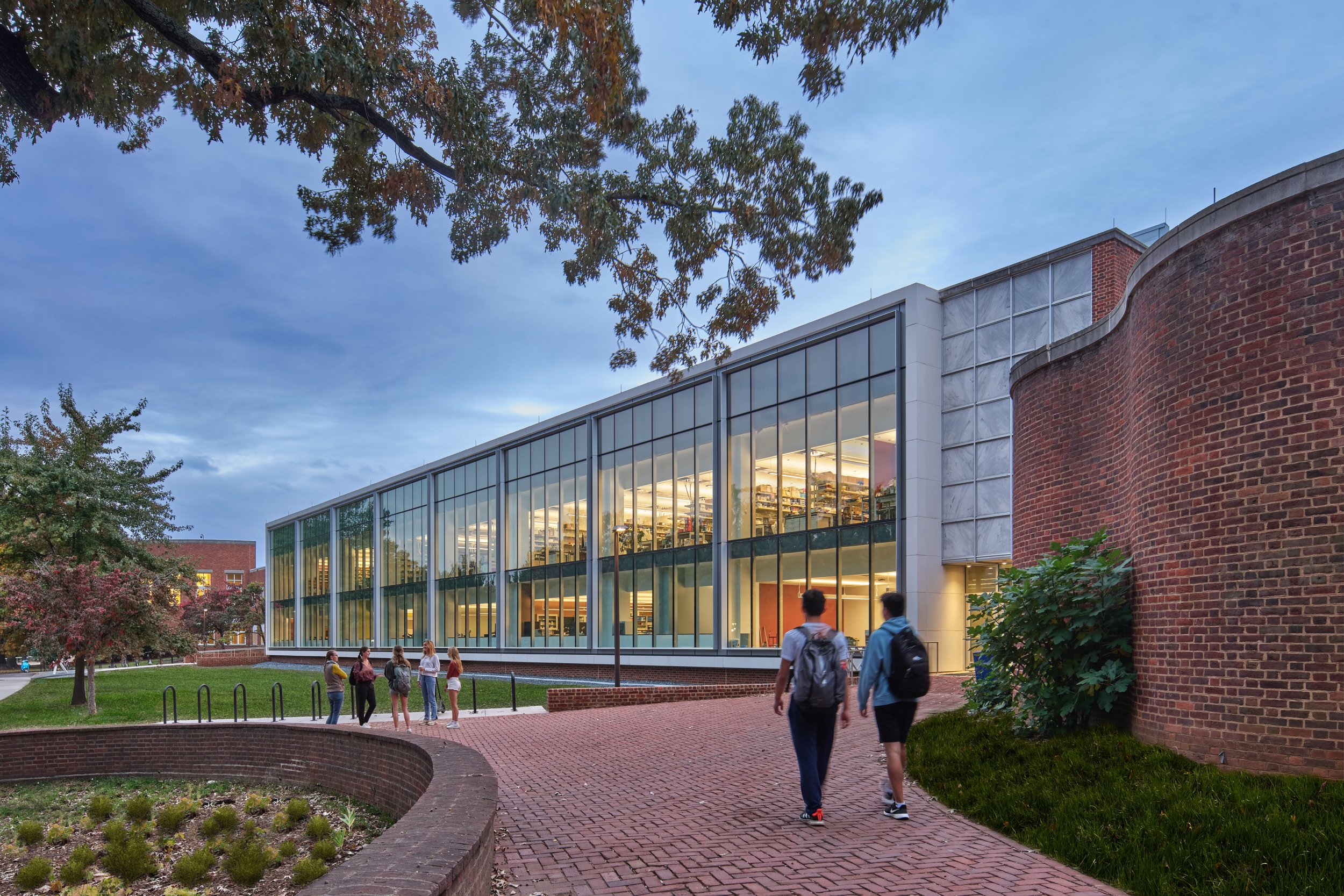Location
Charlottesville, VA
General Contractor
Whiting Turner
Size
175,376 sq. ft.



Overview
Design Electric undertook a comprehensive service upgrade for the Chemistry and Gilmer Hall buildings, spanning six years. This project involved upgrading the electrical systems across both buildings—each with four floors and a top-floor mechanical room. The challenge was to ensure that the buildings remained fully operational while integrating the new electrical services. Careful planning and precise execution were crucial, as the buildings were fully occupied, and only specific sections could be handed over for upgrades at a time. The project focused on modernizing the electrical systems in the laboratories, aligning them with the latest research requirements.
Quality Control
Design Electric’s quality control manager played a pivotal role in ensuring the accuracy of the work. He meticulously double-checked drawings, particularly for the complex lighting systems and controls. His attention to detail ensured that everything functioned correctly before the lighting controls representative was brought on-site.
Project Scheduling
Thorough planning and detailed scheduling were essential to the project’s success. The team had to carefully map out each phase of the work, ensuring that every step was well-thought-out and executed without impacting the building’s operations.
Project Goals
The primary objective was to bring the electrical services and laboratories up to the latest standards, supporting cutting-edge research and allowing for future growth. Working in a live environment posed unique challenges, requiring Design Electric to anticipate and address unforeseen issues while maintaining the building’s operational integrity.
Collaboration
The key goals were to complete the project on time and within budget. Design Electric’s commitment to collaboration ensured a successful partnership, underpinned by a strong working relationship.
Safety Protocols
Safety was crucial, particularly because the building needed to remain fully operational. Working on live electrical systems required meticulous scheduling and coordination with the University, especially during ongoing classes or critical experiments that could not be disrupted.
